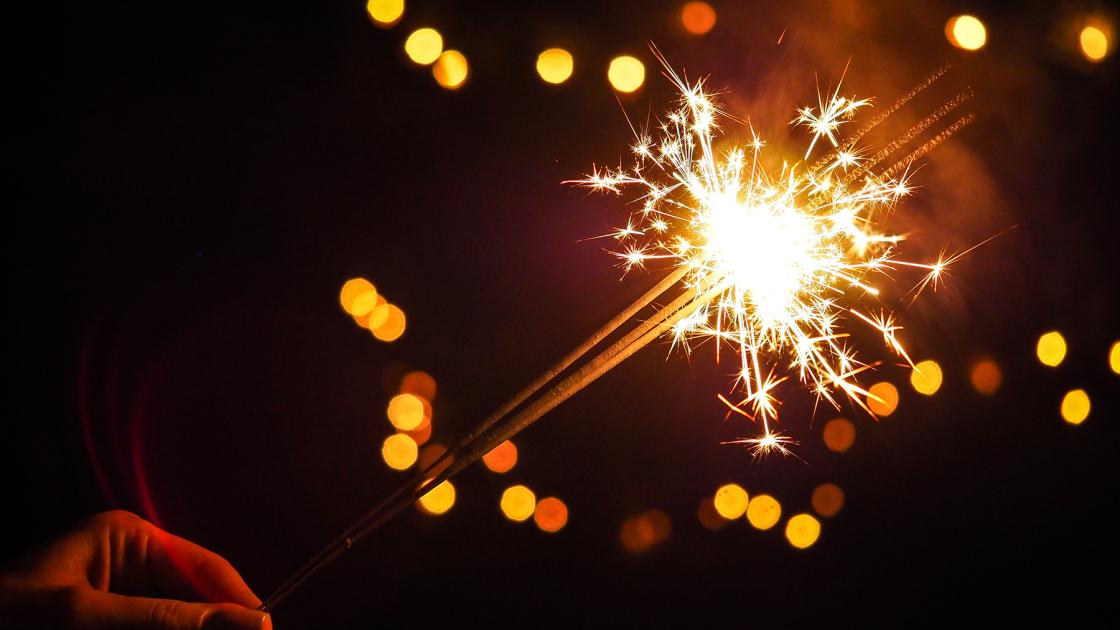
Don’t get burned by the 4th
The Fourth of July should be all about friends, family, picnics and parades. It shouldn’t involve accidents, ER visits and lives altered forever. However, with the increase in the use of powerful fireworks in private displays, it’s easy for a celebration to turn into a tragedy in an instant.
"Fireworks are dangerous,” warns Dr. Jason Kegg, emergency medicine physician at SIU School of Medicine. “We see blast injuries in children as well as adults, and sometimes, it ends up with the loss of eyes, fingers, toes or even a hand. There’s no such thing as a safe firework.”
Bursting the bubble on fireworks
Even the innocuous sparkler isn’t safe. Sparklers can quickly reach temperatures of 1,800 degrees. In 2021 there were more than 1,100 ER visits caused by sparklers.
According to the U.S. Consumer Product Safety Commission, about 10,200 people were seriously injured by fireworks in 2022 and 11 people died. Statistics show that it’s overwhelmingly younger males who are injured.
A 10-year NIH study found that nearly 40 percent of patients who were injured by fireworks required surgery. Fireworks most commonly cause significant burn injuries to the hands and face. They also result in eye injuries, soft tissue defects and fractures that require plastic surgical intervention.
Treating a firework burn
If you sustain any type of burn from a firework, immediate medical attention is necessary. If the burn is severe, call 911. Next, you must use cool water to stop the burning process. Never use cold water or ice, both can deepen the injury. Remove all clothing and jewelry from the burn area and cover it with a clean, dry sheet or loose bandage. If you haven’t called the paramedics, drive to the closest ER. Burns require evaluation and immediate treatment.
Treating a firework eye injury
The most recent Consumer Product Safety Commission report found that 16% of firework injuries were eye injuries. Fireworks can rupture the globe of the eye resulting in chemical and thermal burns, retinal detachment, corneal abrasions, eye damage and vision loss.
If you sustain an eye injury from fireworks, seek immediate medical attention. In the interim, do NOT:
- Rub or touch your eyes
- Rinse your eyes
- Remove any object stuck in your eye
- Apply any kind of pressure
- Apply any ointments
- Take any blood thinning medications including aspirin or ibuprofen
You can cover your eye with a circular object like the bottom of a paper cup to create a temporary patch to shield the eye as you head to the ER. Just be sure not to press the shield against the eye.
Firework safety tips
While there are no safe fireworks, if you’re still determined to use fireworks this Independence Day, here’s 10 tips can make a dangerous activity a bit safer.
- Don’t allow children to handle fireworks of any kind.
- If you choose to buy fireworks to use in another state where they might be legal, only buy fireworks with a label that has the manufacturer’s name and directions. Illegal fireworks are often unlabeled.
- Always use fireworks outdoors and have a bucket of water or hose nearby.
- Point fireworks away from homes, other people, brush, leaves and flammable substances.
- Never attempt to make fireworks.
- Never hold fireworks or have body parts over them while lighting. Always wear eye protection.
- Light one firework at a time (not in glass or metal containers). NEVER relight a dud.
- Never let children pick up fireworks after an event. Unexploded fireworks may still be dangerous.
- Soak used fireworks in a bucket of water before throwing them in the trash.
- Think about your pet. Animals have sensitive ears and can be stressed or frightened by fireworks. To reduce the risk of pet injury, secure them indoors.
Enjoy the holiday responsibly and ensure your celebrations are memorable for all the right reasons. Keep your family safe by following our fireworks safety tips and sharing this information with others. Prioritize safety and make the Fourth a joyful and accident-free day.



